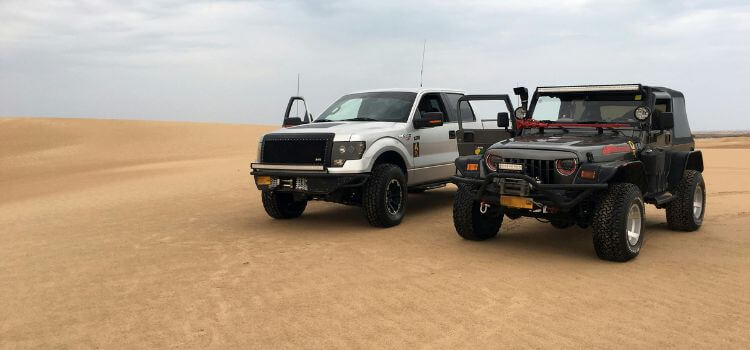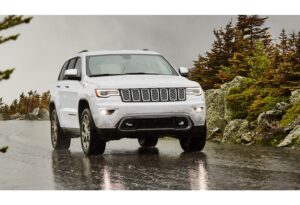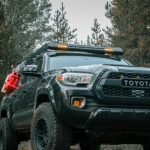Used Jeeps are reliable due to their off-road capabilities and sturdy build. They maintain value well, appealing to those seeking durability in a pre-owned car.
Adventurers and drivers who want a rugged, all-terrain vehicle might consider buying a secondhand Jeep. Jeeps like the Wrangler and Grand Cherokee are famous for durability and performance.
Used Jeeps are popular pre-owned vehicles since they last for years with proper maintenance. As with buying a used car, examine its history to ensure it’s well maintained.
Table of Contents
ToggleJeep’s Reputation And Popularity
Jeep has an iconic status in the auto world. Known for their rugged build and off-road prowess, Jeeps carry a legacy. They represent boldness and freedom. People recognize the brand for its durable and rigid vehicles. This reputation often extends to the used car market, where Jeeps remain in high demand.
Icons In The Automotive Landscape
Jeeps have shaped car culture globally. Each model has made an impact, from the original Willys Jeep of World War II fame to the modern Wrangler. With their recognizable design and trail-conquering abilities, Jeeps symbolize American automotive history. Collectors and enthusiasts seek older models, while daily drivers trust the brand’s reliability.
Popularity Among Buyers
Buyers love Jeeps for many reasons:
- Diverse Range: From the rugged Wrangler to the comfortable Grand Cherokee.
- Adventure-Ready: Most models boast 4×4 capability for off-road adventures.
- Community: Jeep owners share a tight-knit bond with clubs and events worldwide.
These factors make used Jeeps a hot commodity. They offer both fun and functionality, appealing to a broad audience. The allure of a Jeep is hard to resist, even when looking at used cars.
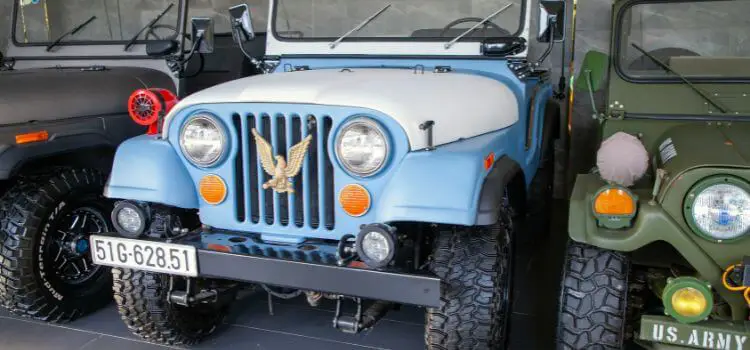
Durability And Longevity
Jeeps are renowned for their rugged build and go-anywhere abilities. When eyeing the used car market, their durability and longevity often stand out as prime factors for buyers.
Engineering For Endurance
At the core of every Jeep is a design focused on resilience. These vehicles boast heavy-duty components and materials made to withstand the most challenging conditions. Here’s why you can trust a Jeep’s endurance:
- Advanced 4×4 systems ensure reliable performance off-road and in harsh weather.
- Durable body-on-frame construction offers extra strength for all adventures.
- High ground clearance and protective underbody elements keep crucial parts safe.
Resale Value Considerations
Jeeps not only provide long-lasting service but also maintain their value over time. This is key when purchasing a used car. Below are important points that highlight the exceptional resale values of Jeeps:
| Jeep Model | Estimated Resale Value After 5 Years |
|---|---|
| Wrangler | ~70% |
| Grand Cherokee | ~55% |
A Jeep’s iconic style and brand loyalty contribute to this value retention. With proper care, a used Jeep can serve as both a reliable ride and a wise financial decision.
Common Concerns When Buying Used Jeeps
Are you thinking of buying a used Jeep? It’s a choice many make. But, like all used cars, there can be concerns.
Wear And Tear Issues
Used Jeeps often face wear and tear. It’s something many potential owners worry about. Jeeps are built tough, yet specific models might show signs of heavy use. This is especially true for those used off-road. Check for:
- Undercarriage rust
- Uneven tire wear
- Suspension problems
- Engine wear
Always inspect a used Jeep thoroughly. Or get a mechanic to do so.
Maintenance Cost Expectations
Know the costs before you commit to a used Jeep. Maintenance can be pricier for specific Jeep models. Here’s a breakdown of expected costs:
| Service | Cost Range |
|---|---|
| Oil Change | $35 – $75 |
| Brake Pads | $150 – $300 |
| Tire Replacement | $600 – $1,200 |
| Timing Belt | $500 – $1,000 |
Remember, these are average costs. Prices can vary. Always budget for unexpected repairs with used vehicles.
What To Look For In A Used Jeep
Are you thinking about getting a used Jeep? That’s a smart choice! Jeeps are known for their durability and off-road prowess. But be careful—not all used Jeeps are equal. Some things need a close look before you buy. This guide will make sure you choose a great ride.
Model-specific Research
Each Jeep model is unique. Do your homework on the one you want. Check for any common issues or recalls. Online forums and reviews are gold mines for this info. Focus on these specifics:
- Common problems: Look up what tends to go wrong with the model.
- Recalls: Find out if it has any and if they were dealt with.
- Trim levels: Some trims offer better features or parts that last longer.
- Performance history: See how the Jeep holds up over time.
Inspection Checklist Essentials
Inspecting a used Jeep is a must. Use this checklist to catch issues early:
| Area | Checkpoints |
|---|---|
| Engine | Leaks, noise, and oil level |
| Transmission | Smooth shifts and no strange sounds |
| Brakes | Pads and discs for wear, responsiveness |
| Tires | Tread life and wear pattern |
| Suspension | No strange noises or loose feeling |
| Frame | Check for rust or damage |
| Exterior | Signs of major repair or accidents |
| Interior | Electronics work, no tears or stains |
Remember, your best friend in the process is a trusted mechanic. Have them look at the Jeep, too. A professional eye spots things you might miss. This step can save you from future troubles and extra costs.
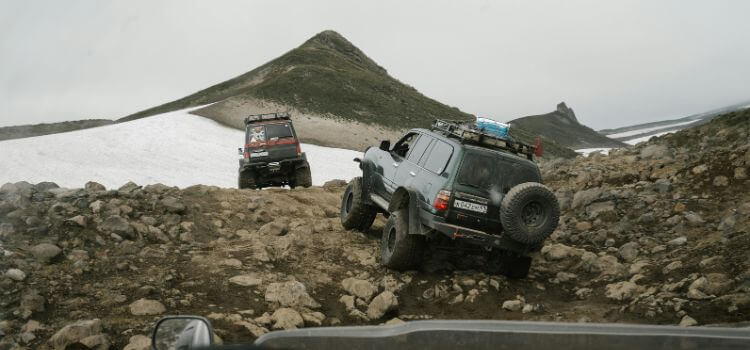
Making The Decision: Pro Tips
Deciding to purchase a used Jeep requires knowledge and strategy. Knowing when to negotiate and step away can make all the difference. With dependable build quality and a loyal fan base, used Jeeps offer potential for adventure and reliability. Below, discover pro tips to secure the best deal and recognize the right time to walk away from a purchase.
Negotiating The Best Deal
Before entering negotiations for a used Jeep, arm yourself with information. Research the model’s market value, joint issues, and ownership costs. During discussions, emphasize any car flaws to lower the price. Offer a fair price, slightly below market value.
- Check the average selling price – Use online tools to determine what others pay.
- Inspect the Jeep thoroughly – Look for rust, tire wear, and engine condition.
- Take a test drive – Listen for unusual noises and check how the Jeep handles.
- Get a pre-purchase inspection – A mechanic can find hidden problems.
- Discuss repairs and maintenance – Use these to negotiate a lower price.
- Start with a lower offer – Be respectful but firm with your bid.
When To Walk Away
Recognize red flags that signal a walk-away situation. Significant rust, frame damage, or a salvage title are deal-breakers. Consider these warning signs if the seller hesitates to provide maintenance records or denies a pre-purchase inspection.
- Major structural issues – Frame damage or rust signifies expensive repairs.
- Salvage title – This indicates the Jeep was totaled in the past.
- Lack of maintenance records – Uncertain history can lead to unforeseen issues.
- Poor performance on test drive – Engine or transmission problems are costly.
- Unwillingness for inspection – Sellers should agree to a mechanical schedule.
- Non-negotiable price – If the seller won’t budge, better deals may exist elsewhere.
Frequently Asked Questions Of Are Jeeps Good Cars To Buy Used
Are Used Jeeps Reliable Cars?
Used Jeeps can be reliable, but their dependability varies by model and maintenance history. It’s crucial to check service records and get a pre-purchase inspection.
What Year Is the Best To Buy a Used Jeep?
The best year to buy a used Jeep is typically the most recent you can afford, focusing on models 3-4 years old for value retention. Look for lower mileage and a clean maintenance record. Jeep Grand Cherokees from 2014-2017 are particularly recommended for reliability.
What Are The Disadvantages Of Jeeps?
Jeeps can offer a harsh ride, less fuel efficiency, and higher initial costs. Owners sometimes report reliability issues and face steeper maintenance expenses. Off-road designs may compromise on-road comfort.
How Long Will Jeeps Usually Last?
With proper maintenance, Jeeps typically last between 200,000 and 400,000 miles. Regular care can ensure a lifespan of over 15 years for most Jeep models.
Conclusion
Wrapping up, Jeeps offer robustness that draws second-hand buyers. Their reputation for durability aligns with cost-effective longevity. When eyeing a pre-owned vehicle, remember Jeeps typically retain value and tackle diverse driving needs. A Jeep could be your sturdy companion on the road.

